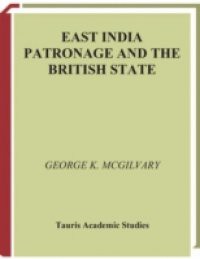The Act of Union in 1707 brought with it a new 'Great Britain'. How did the English 'bind' the Scottish elites into the new British State, ensuring the stability of this new power in the face of possible Jacobite and international threat? _x000D_From 1725 a patronage system existed in Britain enabling ministries to use posts in the East India Company and its shipping to secure political majorities in Scotland and Westminster. Beginning with a trickle in the 1720s, Scots went to India as Company servants, ships' crews, soldiers and free-merchants. This became a flood from the mid-century eighteenth century, with the Jacobite threat gone and the start of a European war. By the 1750s Scots recruits filled a disproportionate number of posts on offer, particularly in the Company's military wing. Invariably those sent abroad sprang from the ranks of the Scottish elite, sons of landowners - from the highest strata of the aristocracy down to the middle class. An unforeseen benefit of this patronage system was that those Scots who survived brought back exceptional wealth to a land starved of money, providing for commercial and industrial advances throughout Great Britain. Throughout the later part of the eighteenth century this Indian wealth was to be of major importance to the Scottish economic fabric. The money they introduced into the Scottish economy, as well as being substantial, reached further down into society. The system flourished until Henry Dundas took control of the financial affairs of the East India Company following Pitt's India Act of 1784._x000D_The importance of the system of patronage which enabled so many Scots to go to the East has not hitherto been recognised and cannot be overestimated. It bound the Scots with their English neighbours in business, political management and empire, with consequences going far beyond the Eighteenth Century. It was an interaction that helped merge the two distinct countries; and the war that enveloped everything from 1757 onwards did the rest.

